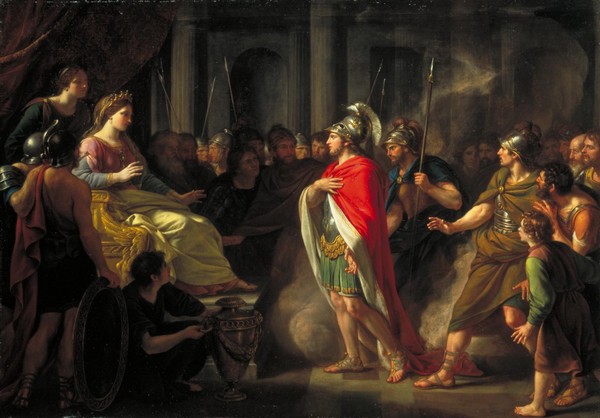
Do the celebrations to commemorate the anniversaries of the composers make sense? The question arises with every enthusiastic celebration or with every birthday that goes unnoticed, that is, every year. It's assumed that, beyond paying homage to the composer and enjoying his music, the anniversaries should serve to disseminate his work, and some perspective is required to know if the aim was achieved. For example, the commemoration of 100th anniversary of Schubert's death in 1928 meant a major review of his figure and work. At the end of the century, in 1991, the commemoration of 200th anniversary of Mozart's death was accompanied by a exhausting marketing campaign, but it left many studies, books and recordings, including the first complete recording of his work.
And, between this two cases, not one but two anniversaries made visible again another great composer: Henry Purcell. In 1945, 300th anniversary of his birthday, and in 1959, 250th anniversary of his death. Despite having been tremendously succesful during his short life, his work had gone virtually forgotten. Not for a small circle of musicians and scholars, but for the public at large, as also happened with Bach until Mendelssohn rediscovered him. The reasons could be similar; both had lived in times when virtually only contemporary music was performed, and this music was eventually forgotten after the composer's death. As for Bach, some composers that admired Purcell contributed to make his work known, among them Benjamin Britten. His best known contributions are the editions, along with Imogen Holst, of the opera Dido and Aeneas and the semi-opera The Fairy Queen, but we songlovers are especially interested in his realizations.
A realization is a musical composition that has been completed or enriched by someone who is not the composer, and that's what Britten did with around fifty pieces by Purcell that the composer had deliberately left incomplete; following the costums of his time, he had written the vocal part and the figured bass, while the performer should complete the rest of the accompaniment. And Britten wrote these non-existent parts. It was by no means a version according to historical criteria; Purcell had wanted the performers to express themselves freely, and that's what Britten did. Respectfully, with love, but from his 20th century point of view, he made versions for voice and piano, while Peter Pears edited the voice parts.
The first realizations were written in 1938, and he kept on writing until 1971, although they were written for the most part around the two anniversaries. In one of their first recitals Britten and Pears performed one of the songs, If music be the food of fove; it was a sort of test and, encouraged by the success, they included for decades a group of Purcell's songs in all their concerts. It was a way to share with the audience their love for that (back then) almost unknown work; in the UK and even more in the rest of Europe; thanks to them, Purcell made a place in concert halls.
Most of the realizations belong to two works: Harmonia sacra, a collection of anthems, and Orpheus Britannicus, a sort of selection of Purcell's highlights published in two parts shortly after the composer's death, in 1698 and 1702. However, I suggest that we listen to one of the operatic pieces; if I'm not wrong, my reader F will be particularly happy with the choice, and I hope she won't be the only one to enjoy this well-known piece. I'm talking about When I am laid in earth, that can be heard at the end of the opera Dido and Aeneas, which is based on the famous episode of the Aeneid by Virgil. Trojan Aeneas arrives in Carthage when a storm diverts him from his route; he falls in love with Queen Dido, and decides to settle there. The gods, however, remind Aeneas of his duty to found a city; the hero leaves and Dido, abandoned, dies.
In Virgil's work, she commits suicide, while in Purcell's opera, with libretto by Nahum Tate, she simply dies; her final words are for her friend Belinda, and this is the piece, recitative and aria (Thy hand, Belinda - When I am laid in earth) that we're listening, performed by Christine Schäffer and Eric Schneider. You might be interested on listening to the entire album, Apparition, in which the artists alternate songs by Purcell/Britten with some by Crumb, including (following Dido's lament) The night in silence under many a star, which we heard a while ago.
Thy hand, Belinda,
darkness shades me.
On thy bosom let me rest,
more I would,
but Death invades me;
Death is now a welcome guest.
When I am laid in earth,
May my wrongs create
no trouble in thy breast;
remember me, but
ah! forget my fate.


 The C...
The C... "Britte...
"Britte... Septem...
Septem...











Comments powered by CComment